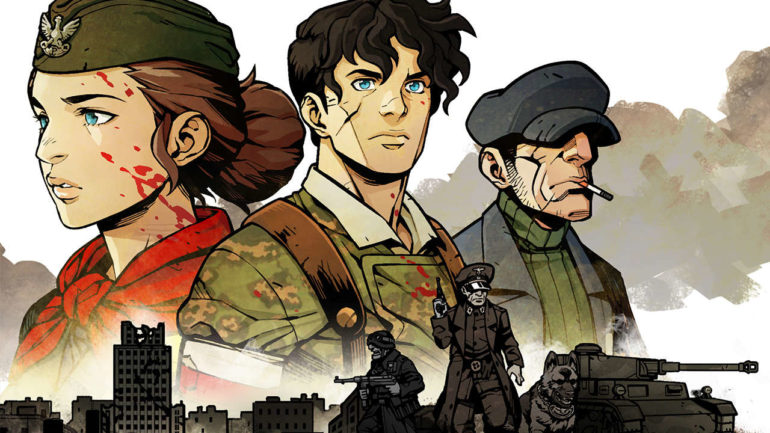The strategy genre is one of the most versatile and meaningful in the industry as it combines creative thinking and effective executable action. This opportunity for creative thinking and effective action comes from the genre’s innate features of depth and complexity. Strategy games also bring the most content volume and value as they usually require a serious commitment of time from players. However, there is always room for improvement to take the genre into a new evolutionary phase and here are several ways developers can consider when developing their own strategy games.
Before deciding on the type of strategy game to develop, and choosing an area of research and inspiration, it is necessary to critically analyze the successes and failures of previous titles. Some points of emphasis for analysis are the aspects of technology (i.e. processors and graphics cards, as well as game engines) and its interaction with game ideas, core game design concepts, and unique mechanics. The process of retrospective critical analysis informs developers of a creative path forward on their game, how best to implement their design ideas, and take inspiration from predecessors.
One recommendation that I can give to strategy game developers in pushing the boundaries of the strategy genre is to move away from the class base building RTS and their usual accompanying mechanical emphasis on rapid and intense action. As an alternative to these classic RTS features, I recommend focusing on unit characteristics, detailed and meaningful map design, the involvement of developed characters, the tactical application of units, and the process of composing strategy. The goal of strategy game evolution is to focus on macro features, elements, and gameplay mechanics that push the player intellectually. In effect, focus on the strategy part of the strategy genre, which implies deliberation, planning, preparation, and effective follow-up action on a larger scale.
Taking a step away from specific game feature development, many recent high-budget strategy series have been streamlining games or stripping features from them and reapplying budget and creative resources to better graphics, marketing, or other minor improvements to gameplay, while sacrificing opportunities to iterate and innovate. Strategy games are as much pieces of art as they are the products of marketing meant for profits and revenue. A crucial piece to any work of art, especially in a thematically-linked series, is evolution, development, and building upon what has failed and succeeded. This leads to my recommendation to developers to not treat the creative development of games as a zero-sum game. It is paramount for developers to stand and argue their position to their publishers or investors to get the resources necessary for developing a complete and innovative game. For publishes and investors who support developers, it is necessary for them to see the position of the developers and do their best to support the developers in their vision and create an atmosphere where they don’t have to treat development as a zero-sum game, sacrificing one element for another because of some mandate or lack of budget.
Getting into specifics for evolving strategy games, an effective way to push the genre forward is to combine it with other genres like role-playing, simulation, and first-person shooters. We have already seen some of this in games, such as the XCOM series and Radio Commander. Since strategy games are malleable and usually compatible with most other genres, developers should keep finding new and creative ways to combine multiple genres together with strategy games, as that can inform the implementation of features and mechanics.
Relating to the RPG genre, strategy game developers can benefit from applying true role-playing. The common trope of RPG games is the ability to customize characters with appearances, characteristics, unique stats, and skills. While this can be one of many easy ways of applying role-playing to strategy games, I define true role-playing as placing the player into a subjective perspective. The intent is for the player to fulfill one of many roles and be supported by other players or AI driven characters. This does not necessarily have to come from the player’s ability to customize their character, but quite literally occupy a role. For example, in a hypothetical science fiction strategy space combat game, each player takes command of a ship, and their role is that of the captain of that ship. The developers have to make sure in this case that the game they develop around the player accurately represents the perspective of the embodied role.
A way to integrate true role-playing in strategy games is to deploy more meaningful team-based modes in co-op and multiplayer. Many strategy games have multiplayer offerings that basically pit a group of players against one another, but due to how maps are designed and the viewpoints chosen for each player, it more or less comes down to players engaging with the game separately from one another, but in a team, with only limited coordination or meaningful teamwork. By giving each player a unique perspective to embody in a team that pushes strategy games from solely focusing on self-sufficiency to teamwork and coordination.
A unique story, lore, brand, or narrative can be a great way to establish role-playing perspective and, in general, provide a basis for features and mechanical inspiration. A way to push the envelope for developers for strategy games is to create a unique universe with a fully fleshed out overall narrative, an interesting set of characters, and deep informative lore. Examples of games that do a good job of this are Age of Wonders: Planetfall, the Wargame series, and Battle Brothers. In effect, the lore, narrative, and the setting of the strategy should inform player behavior and role-playing capabilities within the game. This also means developers should be encouraged to take history and other settings as inspiration for developing their own unique ones.
One of the many strengths of the strategy genre is conceptual and mechanical depth and the ability of players to read, manipulate, and use many variables and information for their benefit of achieving some kind of goal. A major critique of strategy games that dulls their mass appeal is a poor presentation of information to the player. Hence, to evolve the strategy genre it is necessary to invest in developing understandable and effective UI that presents all meaningful and relevant information to players at any given moment so that they can focus on the cerebral engagement of planning and making moves, rather than fighting the game to understand how it works and where to find critical information.
A final specific recommendation, for grand strategy and 4X games in particular, is to invest resources in developing meaningful tactical combat. A unique opportunity grand strategy and 4X games have is modeling the effect strategy has on tactical combat and vice versa. However, it is quite common to see grand strategy games focus solely on resource management and abstracted combat, whereas tactical engagements can serve as serious defining features of a strategic approach.
The strategy genre has some of the greatest potential to evolve and carry the video game industry forward into a new phase of innovation. The best path for developers and publishers to not treat the development process as zero-sum game, focus on true role-playing, and integrate meaningful team-based gameplay. At least these three elements can be the foundation for future strategy games.
Some of the coverage you find on Cultured Vultures contains affiliate links, which provide us with small commissions based on purchases made from visiting our site.



